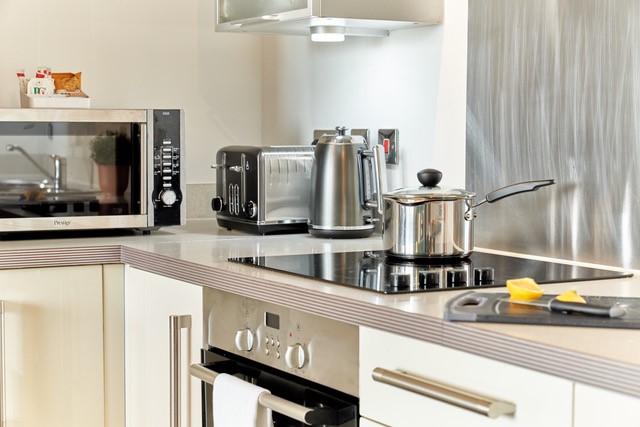The safe choice when staying away on business
We are all navigating challenging circumstances due to the recent Covid-19 pandemic. However, I am optimistic and naturally lean towards seeking the positives in people and situations, which I have demonstrated through my 30+ years in the serviced apartment industry.
To that end, and as I reflect on our numerous conversations with serviced apartment operators and investors, it occurred to me that the industry continues to stand tall and stable today, even in the face of adversity. More importantly, looking ahead over the next 24 months during the pandemic and as we begin to return to a sense of normality, the outlook for the sector is more promising than other hospitality segments!
The global consensus suggests that as we try to co-exist with this virus and advance, we will live our day-to-day lives in a significantly more managed environment. This will continue until we either have a vaccine or the virus dissipates. In both scenarios, we are set to live in a new environment for the foreseeable future. As a result, it is expected to have a profound effect on hospitality and how travellers, both corporate and leisure, behave.
Consider the impact the Covid-19 lockdown has had to date on businesses and consumers. I have noted these in the table below. Fast forward to Phase 2 and Phase 3 of the pandemic, when governments have control of the R0 number (the infection rate generated by one person) and, in doing so, are able to ease lockdown measures and commence the return to what will be a new normal. This new normal is where I have considered and compared the serviced apartment industry attributes to other hospitality products.
The attributes of the serviced apartment industry address ALL the issues raised by the government's lockdown measures.

| Social Distancing | By nature, serviced apartments are more individualistic. Guests are typically more distant and have little need to engage with the outside world other than to obtain the substance. |
| Enhanced Sanitation | An apartment offers an environment whereby not only can you clean the apartment yourself, but you can also, with the use of the included washing machines and dryers, wash your clothes and linen, ensuring your contact with the outside world is limited. Operators should consider placing complimentary hand sanitisers within their apartments. |
| Face Coverings | A limited requirement when you are living independently. However, operators should consider placing complimentary masks in their apartments. |
| A More Independent Way Of Living | By nature of a self-sufficient apartment, any guest will automatically be independent and if so desiring, can self-isolate from the outside world and in effect, be almost 100% self-sufficient. |
| Preparing A Significant Amount Of Our Own Food | With fully operational kitchens, serviced apartments offer a travelling guest the ability to avoid contact with restaurants, takeaway etc, by enabling the ability to prepare and cook all your food. |
| Learning To Work In Isolation | As most of us have experienced over the last few weeks, getting to work from home and independently of a workplace has not been as challenging as we thought. Most serviced apartments have a table and chair with super-fast Wi-Fi. Again, this allows any traveller to stay connected in a comfortable home office without engaging in co-sharing areas. |
| The Increased Use Of Technology | Most operators supply within their apartments super-fast Wi-Fi. To this end, the ability for a traveller to work effectively within their apartment is perfect. |
Traditional forms of hospitality, including hotels, hostels and shared accommodation (such as Airbnb) are faced with several challenges that serviced apartments just do not see. In particular, I believe hospitality products requiring guests to share sleeping and living spaces will be under substantial pressure at the end of this pandemic. It is my view only, but I believe that for a sustained period (if not forever) travellers will be resistant to sharing a bedroom or, indeed a living area.
This brings me to traditional hotels, whereby the guest is almost reliant on the use of shared spaces. The primary challenges and implications, as I see them, include:
- The rooms must be cleaned and linen changed frequently – this involves unnecessary interaction between guests and staff.
- No kitchen causes guests to seek alternative solutions – this involves unnecessary interaction with the outside world.
- The higher level of footfall in a hotel is significantly more than a serviced apartment – shorter length of stay, more staff, more amenities – collectively probably increases the number of persons interacting per week within the building by 2 -3 times; this allows for a higher risk of interaction.
All the above factors have led me to the conclusion that this is likely to be a defining moment (and, importantly an opportunistic one) in the serviced apartment product lifecycle. The impact and opportunity will become even more apparent as we see the unavoidable adaptation of working habits (e.g. less office space needed) and the unfortunate collapse of so many businesses. The critical challenge for investment houses will be repurposing and finding occupants for millions of square footage.
